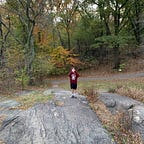How to Cope With Tragedy Onscreen: Spike Lee’s ‘25th Hour’
This story is part of my weekly “Have you seen …” series where I highlight movies that I think are under-appreciated, misunderstood, or simply worth talking about. New entries are published every Wednesday. NOTICE: Spoilers follow.
How strange it must have been for audiences who went to see BlacKkKlansman in 2018: those who expected an out-and-out Spike Lee movie instead got a pretty sound cop flick, and those who expected a sound cop flic got what they wanted — until the finale, when Lee began to intersperse footage of contemporary racial unrest across the country, culminating in a tribute to Heather Heyer, murdered by a white supremacist in Charlottesville the year prior.
Subtle Lee is not, but his instinct here is one many directors in his tier tend to shy away from: taking pre-existing material — in this case, a story about the police breaking up a cell of KKK members in the early 70s—and grafting onto it an explicit concern for contemporary events. Many would have watched BlacKkKlansman and be fully capable of making these connections on their own, but Lee leaves no room for doubt: his films are statements, not artifacts.
Lee is often pigeonholed as a political director — not an unkind or entirely inaccurate designator, but a misleading one to be sure. Lee’s abrasive, agitprop style lends itself to movies with a message, but his merits as a filmmaker are perhaps most on display when he moves out of his traditional space and into something tender, more human. Case in point: 25th Hour.
Lee had already decided to start making 25th Hour, based on the David Benioff (yeah, that David Benioff) of the same name, when the September 11th attacks transformed New York City. 25th Hour was always going to be a movie about New York as much as it was set in New York, but the city itself had changed overnight.
Lee had arrived at a serious artistic crossroads here: set the film in the time period when it was written, with the Twin Towers still dominating the downtown skyline, or work to depict a post-9/11 New York using a story that had nothing to do with the event itself?
The result is something that could have come from Spike Lee and Spike Lee alone. The film follows Monty Brogan (Edward Norton) during his last 24 hours as a free man, slated to serve a years-long prison term upstate for dealing drugs. The movie is a lament for what Monty has lost, what he will lose in his absence. It’s a film that cannily demonstrates the human inability to cope: Monty teeters equally between violent resentment, delusion, and acceptance of his fate.
The movie contains many explicit call-outs to the tragedy itself: a long, unbroken conversation between Monty’s friends Frank (Barry Pepper) and Jacob (Philip Seymour Hoffman) is done in full view of the razed ground zero, situated just outside Frank’s window. There are also some compelling shots of firefighters as well as the quasi-iconic “fuck New York” monologue that has become famous for all the wrong reasons, but 9/11 isn’t something Lee wants to contend with only in terms of window dressing. He’s a New Yorker: it’s more to him than that.
Near the film’s conclusion, Monty’s dad James (Brian Cox contorting his vocal chords into what I think is supposed to be an American accent) drives his son north along the Hudson River and begins wondering what might happen if simply crossed the George Washington Bridge and went west instead. His fantasy, which Lee fully depicts onscreen, is a cross-country road trip in which he drops his son off in some town in the desert to start a new life. Monty lives low, grows older, and eventually starts a family with his girlfriend Naturelle (Rosario Dawson).
It’s perhaps the single most touching sequence Lee has ever put to film: a father imagining a full life for his son, doing everything he can to guard his child against the reality he’s about to face. The reverie goes on for so long that it begins to feel real — our hope that Monty can escape his fate is alchemized by Lee into a certainty that he does. It say so much, then, that Lee end the movie with one final shot of James continuing past the George Washington Bridge, snuffing out any hope of this dream becoming reality.
For me, this is the most direct engagement with the tragedy of 9/11 we find in the film. In the wake of any tragedy, the instinct to slink away is a strong one — as is the instinct to strike back. The “fuck New York monologue” I mentioned earlier ends with Monty accepting that he’s being punished for his own mistakes, not the faults of others, thus his resentment is quashed. The desire for escape, however, lingers on in James, even infecting the audience as the film nears its close.
But Lee denies us any such indulgence. He refuses to validate the desire to shirk the pain as much as he lends no credence to the idea of violent retaliation. The car that drives north towards the next several years of Monty’s interred life is a vessel of tragic dignity, containing a man finally ready to stand up and face what he’s done.
9/11 was the first major American tragedy of the 21st century, but the tyranny of reality has given people many to try and process since — not the least of which were the deadly invasions that followed in its wake. Lee’s quintessentially confrontational style is often mistaken for aggression; this could not be further from the truth. In 25th Hour, he makes a plea for dignity, self-reflection, and understanding in the wake of horror. Not reactionism, not cowardice: acceptance. That he makes his case with such a beautiful film is just a bonus.
